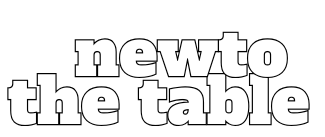In a world where energy bills can feel like a black hole for your wallet, smart energy audits are the superheroes you never knew you needed. They swoop in to save the day, revealing hidden inefficiencies and uncovering opportunities to trim that ever-growing energy budget. Who knew a little audit could pack such a punch?
Picture this: a team of tech-savvy detectives armed with data and gadgets, scouring every nook and cranny of your home or business. They’ll pinpoint energy hogs and suggest upgrades that’ll leave you feeling like you’ve just discovered a treasure chest. It’s not just about saving money; it’s about making your space more comfortable and efficient. Get ready to embrace the future of energy management—because who wouldn’t want to save some cash while being kind to the planet?
Table of Contents
ToggleOverview of Smart Energy Audits
Smart energy audits utilize advanced technology to evaluate energy usage and identify inefficiencies across various settings. These audits focus on assessing how energy is consumed within buildings, facilitating informed decisions on upgrades that enhance energy performance. By addressing energy-wasting elements, audits contribute significantly to lowering energy costs.
Experts conduct smart energy audits, employing tools such as thermal imaging, energy modeling software, and data analytics. With these tools, they pinpoint areas needing improvement and offer tailored recommendations. Benefits extend beyond just cost savings; energy audits also improve comfort by identifying issues like poor insulation or inefficient heating systems.
During the audit process, data collection and analysis play essential roles. Analyzing energy consumption patterns helps prioritize which upgrades yield the highest return on investment. Reports from audits often detail insights on lighting, HVAC systems, and appliance efficiency.
Smart energy audits promote a sustainable approach to energy management by encouraging the adoption of energy-efficient technologies. They empower homeowners and businesses to reduce carbon footprints while improving overall energy efficiency. By making informed decisions based on audit findings, individuals contribute to a greener environment.
The implementation of suggested upgrades typically leads to significant energy savings over time. As individuals and organizations invest in smart energy audits, they experience both financial benefits and a commitment to sustainability.
Benefits of Smart Energy Audits
Smart energy audits present numerous advantages for optimizing energy usage and promoting sustainability. Homeowners and businesses benefit from enhanced efficiency while significantly reducing their environmental impact.
Energy Efficiency Improvements
Energy efficiency improvements emerge from identifying problem areas within buildings. Using advanced tools like thermal imaging and analytics, experts highlight issues related to insulation and HVAC systems. These audits assess energy usage comprehensively, pinpointing inefficiencies that might go unnoticed. Recommendations typically include upgrades, such as better insulation and smarter lighting solutions. Enhanced energy efficiency leads to a more comfortable indoor environment, ensuring spaces remain pleasant year-round.
Cost Savings
Cost savings represent a primary benefit of conducting smart energy audits. Efficiency upgrades often translate into reduced utility bills over time. Analyzing energy data allows for informed decisions that prioritize the most impactful changes. With tailored recommendations, businesses and homeowners can achieve substantial financial returns. Long-term savings emerge from implementing efficient technologies, with many seeing payback periods of two to five years. These audits empower individuals and organizations to invest in sustainable energy solutions while reaping financial rewards.
Technologies Used in Smart Energy Audits
Smart energy audits leverage cutting-edge technologies to enhance energy evaluation processes. These technologies include Internet of Things (IoT) devices and advanced data analytics tools.
IoT Devices
IoT devices play a critical role in smart energy audits by providing real-time monitoring of energy consumption. Sensors collect data on electricity, water, and gas usage in various settings. Information gathered helps identify patterns and anomalies in energy consumption. A smart meter, for instance, tracks energy flows more accurately than traditional meters. These devices enable technicians to pinpoint areas of inefficiency instantly. Integrating IoT devices into energy audits streamlines the assessment process and enhances overall effectiveness.
Data Analytics
Data analytics transforms raw energy consumption data into actionable insights. By analyzing comprehensive datasets, professionals can uncover trends that might go unnoticed. Predictive analytics even allows for forecasting future energy needs based on historical data. Reports generated from analytics detail areas requiring upgrades, such as HVAC systems or lighting configurations. Utilizing these insights helps prioritize enhancements that yield the highest returns. Accurate data analyses drive informed decision-making, ensuring audits lead to substantial energy savings and improved efficiency all around.
Implementing Smart Energy Audits
Implementing smart energy audits involves multiple steps to ensure accuracy and effectiveness. Engaging qualified professionals typically leads to comprehensive assessments.
Steps to Conduct an Audit
- Define goals and objectives. Clear objectives guide the audit process.
- Gather data on energy consumption. Collect information from utility bills and existing systems.
- Use technology tools. Employ thermal imaging cameras and energy modeling software.
- Analyze collected data. Identify areas for improvement using advanced analytics.
- Produce an audit report. Summarize findings and present actionable recommendations.
Following these steps helps identify energy inefficiencies while providing a foundation for successful upgrade implementation.
Best Practices
- Schedule audits regularly. Routine evaluations keep energy usage in check.
- Involve all stakeholders. Engage occupants and operators to gain valuable insights.
- Prioritize upgrades. Focus on improvements that offer the highest return on investment.
- Monitor results post-implementation. Continuously track efficiency gains and savings.
- Stay informed on technology advancements. Keep up with smart energy solutions for optimal results.
Adhering to these best practices ensures thorough audits while maximizing energy efficiency and sustainability.
Challenges and Considerations
Smart energy audits face various challenges that stakeholders must address for successful implementation. Identifying the right technology can be difficult, as the rapid evolution of tools creates confusion regarding which options best serve specific needs. Understanding the balance between upfront costs for upgrades and long-term savings requires careful analysis.
Data privacy becomes a significant concern as audits leverage IoT devices to monitor energy consumption. Ensuring compliance with regulations while collecting and utilizing data is essential. Gaining buy-in from all stakeholders can also pose challenges. Engaging not just management but also employees encourages cooperation on energy-saving measures.
Scheduling regular audits is crucial for maintaining energy efficiency over time. Delays in the audit process can result in missed opportunities for improvements. Finding skilled professionals familiar with smart energy audit technologies can be a hurdle, as demand for such expertise rises.
Understanding the unique energy demands of different buildings is vital. Customized solutions often lead to better outcomes, so auditors must analyze specific characteristics closely. Integration of new technologies with existing systems may present complications. Ensuring compatibility is key to maximizing efficiency and minimizing costs.
Encouraging follow-up on implementation can be challenging yet necessary to measure improvements effectively. Tracking outcomes enables stakeholders to assess the impact of recommended upgrades. Engaging in continuous education about advancements in energy efficiency allows stakeholders to remain proactive in their approaches.
Being aware of these challenges helps organizations optimize their strategies. Focusing on overcoming obstacles related to audits reaps the benefits of energy efficiency and sustainability.
Smart energy audits serve as a vital tool for enhancing energy efficiency and promoting sustainability. By leveraging advanced technology and expert analysis, they uncover inefficiencies and provide actionable recommendations that lead to significant cost savings. Engaging in regular audits not only helps organizations and homeowners optimize their energy usage but also empowers them to make informed decisions about upgrades and investments.
As the landscape of energy management continues to evolve, embracing smart energy audits becomes increasingly important. By addressing challenges and prioritizing collaboration among stakeholders, individuals and businesses can fully harness the benefits of these audits. Ultimately, the commitment to energy efficiency fosters a greener future while delivering tangible financial rewards.








